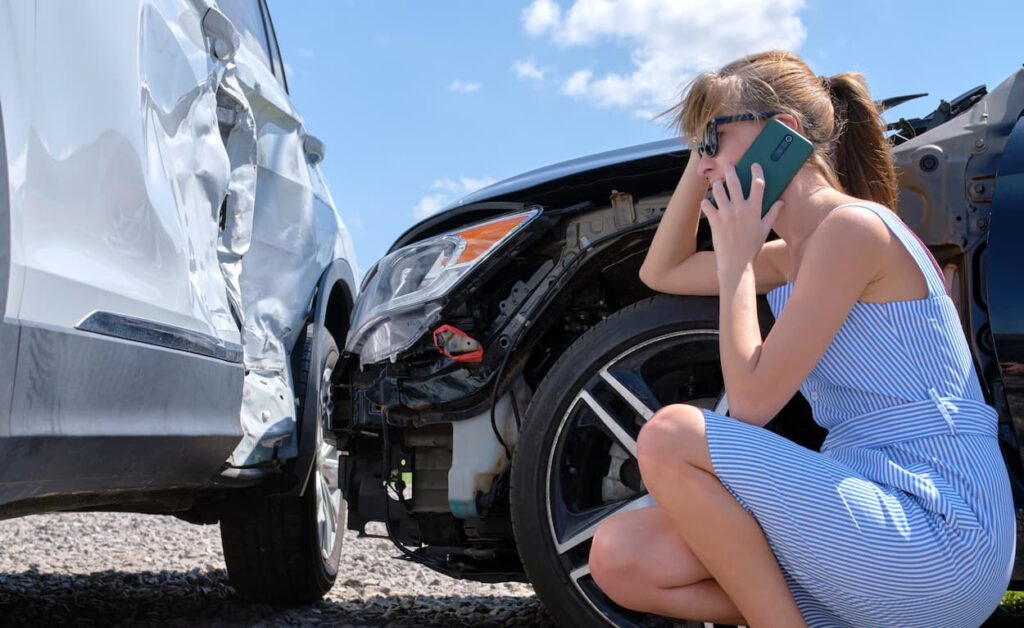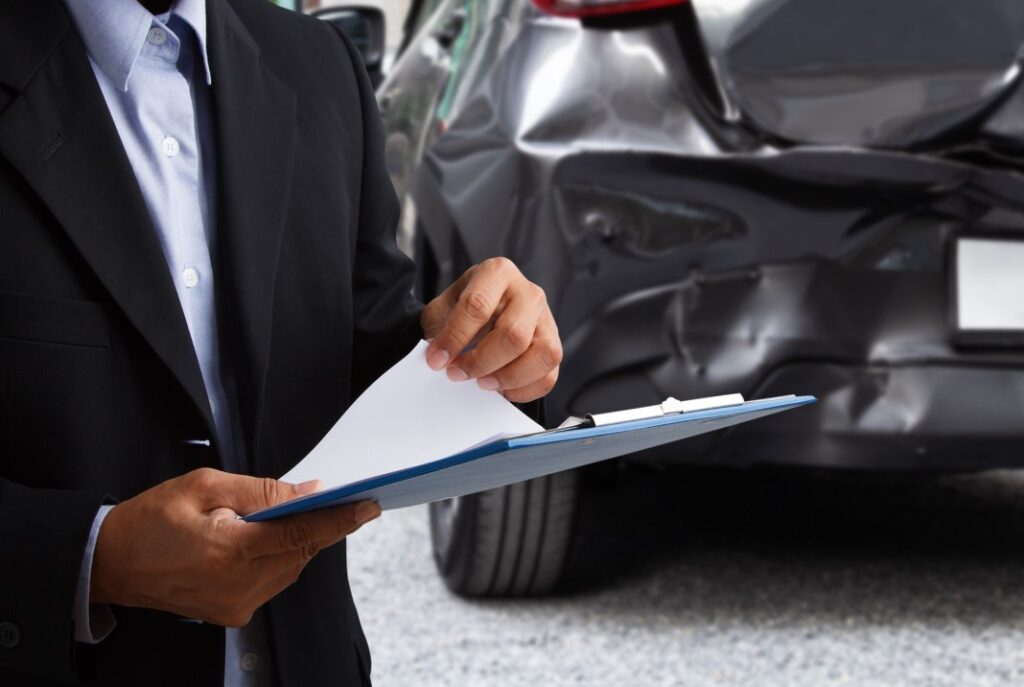When involved in a car accident, one of the most critical decisions you face is selecting the right car accident lawyer to represent your interests. An experienced lawyer can significantly influence the outcome of your case, ensuring you receive fair compensation and justice.
With numerous options available, understanding how to choose a competent and dedicated legal professional is essential. This comprehensive guide will walk you through the essential factors and steps involved in selecting the best car accident lawyers for your situation.
Understanding the Role of a Car Accident Lawyer
Before diving into how to pick the right lawyer, it’s important to understand what exactly a car accident lawyer does and why their role is vital in post-accident proceedings.
A car accident lawyer specializes in personal injury law related to vehicle collisions. Their primary responsibilities include investigating the accident, establishing liability, negotiating with insurance companies, and representing clients in court if necessary. They help navigate complex legal processes, compile evidence, and pursue rightful compensation for damages such as medical bills, lost wages, pain and suffering, and property damage.
Choosing a lawyer with expertise in vehicular accident cases gives you confidence that your rights are protected and that your case is handled with the utmost professionalism. Now, let’s explore the key factors to consider when choosing a car accident lawyer.
1. Experience and Specialization in Car Accident Cases

The Importance of Experience in Personal Injury Law
Experience is arguably the most crucial factor when selecting a car accident lawyer. A seasoned attorney has handled numerous cases similar to yours, understands courtroom procedures, and knows how insurance companies operate. They are better equipped to develop effective strategies tailored to your specific circumstances.
An inexperienced lawyer might overlook important details or fail to maximize your compensation. Therefore, prioritize attorneys with a proven track record in car accident cases. Look for those who have successfully settled or litigated cases comparable to yours, as this indicates familiarity with the nuances involved.
Recognizing Specialization vs. General Practice Lawyers
While many attorneys handle various areas of law, specialization matters greatly in accident cases. Lawyers focusing exclusively on personal injury law, especially vehicular accidents, stay updated on relevant laws, recent court rulings, and negotiation tactics. Their deep knowledge helps in anticipating defense strategies and countering them effectively.
A general practitioner may lack the detailed understanding needed to handle complex accident claims. So, when interviewing potential lawyers, always inquire about their focus area and experience specifically related to car accident litigation.
How to Verify a Lawyer’s Experience
To gauge a lawyer’s experience, review their website, which often lists their practice history, case results, and client testimonials. Don’t hesitate to ask direct questions during consultations:
- How many car accident cases have you handled?
- What percentage of your practice is devoted to personal injury law?
- Can you provide references from previous clients?
Additionally, check online platforms like Martindale-Hubbell or Avvo for ratings and reviews. These sources can offer insights into their reputation within the legal community and among past clients.
The Significance of Case Outcomes
Consider the outcomes of the lawyer’s previous cases. Successful verdicts or settlements demonstrate their ability to effectively advocate for clients. While past results don’t guarantee future success, they do serve as an indicator of competence.
Ask potential lawyers about notable cases they’ve won and how they achieved those results. A lawyer who can articulate their approach and how they secured favorable outcomes can be a strong choice for your case.
2. Reputation and Peer References

Researching a Lawyer’s Professional Standing
Reputation matters immensely when choosing a car accident lawyer. An attorney with a solid reputation among peers, judges, and clients suggests professionalism, integrity, and effectiveness. Use online directories and legal review sites to assess ratings and read reviews.
Look for awards, recognitions, or memberships in prestigious associations such as the American Association for Justice or local bar associations. These affiliations often require adherence to high ethical standards and continual professional development.
The Value of Peer Recommendations
Peer recommendations offer credible insights into a lawyer’s skills and character. Attorneys tend to refer cases or endorse colleagues they trust and respect. If you know other lawyers or professionals in related fields (like chiropractors or medical providers), ask for their opinions about reputable accident lawyers.
Client Testimonials and Reviews
Client feedback provides real-world perspectives on how a lawyer manages cases and communicates. Positive testimonials often highlight attentiveness, transparency, and successful resolution. Conversely, negative reviews may reveal issues like poor communication or unmet expectations.
Visit the lawyer’s website for testimonials, but also explore independent platforms such as Google Reviews or Yelp for unbiased opinions. Pay attention to recurring themes—if multiple clients mention delays or lack of communication, it signals potential red flags.
Checking Disciplinary Records
Ensure the lawyer is in good standing by verifying their licensing status through state bar associations. Most jurisdictions provide online databases where you can check for disciplinary actions, complaints, or sanctions. Choosing a lawyer without unresolved disciplinary issues ensures you’re working with someone trustworthy.
3. Communication Skills and Accessibility

Why Communication is Vital in Legal Representation
An effective car accident lawyer must communicate clearly, promptly, and empathetically. Your case’s complexity requires ongoing dialogue to understand developments, clarify doubts, and make informed decisions.
Poor communication can lead to misunderstandings, missed deadlines, or inadequate advice, negatively impacting your case. As such, assessing a lawyer’s communication style early on is critical.
How to Evaluate a Lawyer’s Communication Approach
During initial consultations, observe how the lawyer responds:
- Do they listen carefully and answer your questions thoroughly?
- Are they transparent about legal processes and potential outcomes?
- Do they explain legal jargon in simple terms?
Effective communicators should make you feel heard and understood, establishing trust and confidence from the outset.
Accessibility Post-engagement
Legal cases often involve urgent matters; delays in responses can hinder progress. Confirm whether the lawyer or their staff will be accessible via phone, email, or in-person meetings. Ask about their typical response time and availability for questions.
If a lawyer is consistently unresponsive during the consultation phase, expect similar issues later. A responsive attorney demonstrates professionalism and dedication to client service.
The Importance of Personal Rapport
Beyond technical skills, personal rapport influences your comfort level and willingness to share sensitive information. Choose a lawyer who exhibits empathy and genuine concern for your well-being. Feeling comfortable discussing your case fosters a more collaborative and productive relationship.
4. Fee Structure and Cost Transparency

Types of Fee Arrangements
Understanding how a lawyer charges is fundamental to avoid surprises later. Common fee structures include:
- Contingency fees: The lawyer receives a percentage of your settlement or award, typically ranging from 25% to 40%. This is common in personal injury cases, including car accidents.
- Hourly rates: The lawyer charges a fixed hourly rate, billing for every hour worked on your case. This arrangement might be less common in accident claims unless the case is complex or goes to trial.
- Flat fees: A predetermined fee for specific services. Less typical in accident cases but possible for consultations or document preparation.
Advantages of Contingency Fee Agreements
Contingency fees lower financial barriers, making legal representation accessible to accident victims who might not afford upfront costs. They also align the lawyer’s interests with yours, motivating them to secure the maximum possible settlement.
Clarifying Costs and Expenses
Beyond legal fees, inquire about additional costs such as court fees, expert witness charges, copy and filing fees, or medical record retrieval expenses. Clarify whether these are included in the contingency fee or billed separately.
Request a written fee agreement detailing:
- Fee percentages
- Expenses covered
- Terms for fee deductions
- Procedures if the case is unsuccessful
Ensuring Transparency and Avoiding Hidden Fees
A reputable lawyer will openly discuss all costs upfront. Avoid lawyers unwilling to provide clear fee structures or those who add unexpected charges later. Transparency fosters trust and ensures you’re financially prepared throughout the process.
5. Compatibility with Your Needs and Expectations

Assessing Personal Compatibility
Your chosen lawyer should not only be competent but also compatible with your personal needs. Consider their approach to case management, their attitude, and how well you communicate.
Ask yourself:
- Do they seem genuinely interested in my case?
- Are they respectful and empathetic?
- Do I feel comfortable sharing personal information?
This rapport can significantly influence the quality of your legal representation.
Aligning Expectations and Goals
Discuss your expectations early. Be clear about your desired outcomes, timelines, and concerns. A good lawyer will manage your expectations realistically and outline potential legal paths.
Ensure the lawyer understands your priorities ─ whether maximizing compensation, resolving quickly, or emphasizing certain aspects of your claim.
Flexibility and Adaptability
Cases can evolve unexpectedly, requiring flexible strategies. Choose a lawyer willing to adapt and explore alternative solutions, such as settlement negotiations or trial, based on your best interests.
Cultural and Language Considerations
If you have specific cultural or language needs, find a lawyer who can accommodate them. Effective communication is essential for understanding legal complexities and feeling confident in your representation says attorneys at Law Offices of Gerald J. Noonan.
6. Local Knowledge and Courtroom Experience

Importance of Understanding Local Laws and Courts
Each jurisdiction has unique laws, procedures, and court cultures. An attorney familiar with local courts and legal communities can navigate procedural nuances more efficiently, increasing your chances of success.
Courtroom Experience and Trial Readiness
Though most car accident claims settle out of court, some cases proceed to trial. An attorney with extensive courtroom experience and a proven track record in jury trials can be invaluable if your case reaches litigation.
Ask about their specific experience in your jurisdiction and their comfort level with trial proceedings. Their readiness to go to court may influence their negotiation stance and your ultimate recovery.
Building Relationships With Local Experts
Experienced local lawyers often have relationships with judges, insurance adjusters, accident reconstruction specialists, and medical experts. These connections can strengthen your case and streamline the legal process.
Conclusion
Selecting the right car accident lawyer is a decisive step toward securing the compensation and justice you deserve after a vehicular collision. Prioritizing experience and specialization ensures your case is managed by skilled professionals knowledgeable in personal injury law. Evaluating reputation and peer references confirms credibility and ethical standards, while assessing communication skills guarantees a smooth and transparent process.
Clarifying fee structures helps you avoid unexpected costs, and ensuring personal compatibility fosters a trusting relationship. Lastly, choosing a lawyer with local courtroom experience and community ties can be instrumental if your case proceeds to litigation. By carefully considering these factors, you lay a strong foundation for a successful legal journey toward recovery.
Navigating the aftermath of a car accident can be overwhelming, but the right car accident lawyer can make all the difference. It involves evaluating an attorney’s experience, reputation, communication skills, fee transparency, and local expertise. Taking the time to thoroughly research and interview prospective lawyers ensures you select a dedicated professional aligned with your needs and goals.
Ultimately, a competent and compassionate lawyer not only advocates effectively on your behalf but also provides peace of mind during a challenging time. Remember, your choice in legal representation can profoundly influence the outcome of your claim, so choose wisely.







